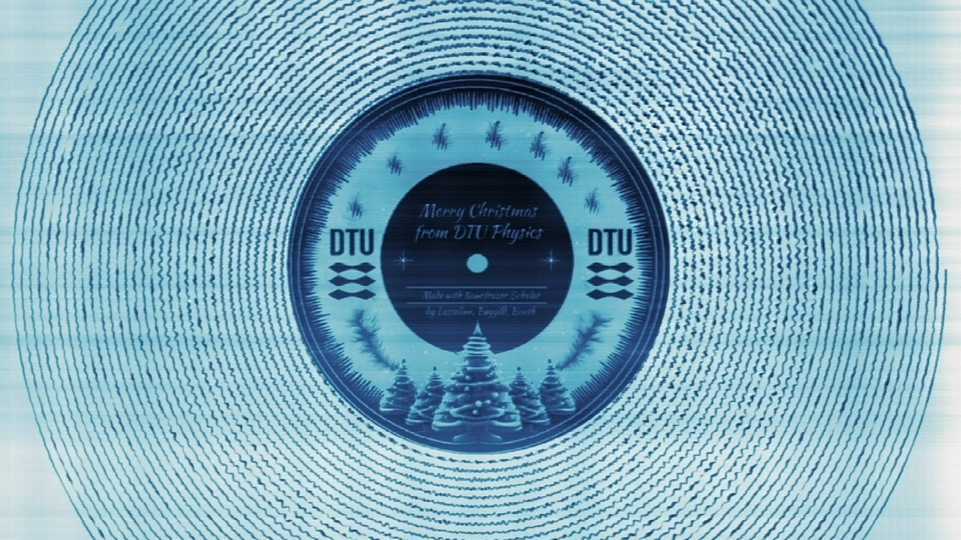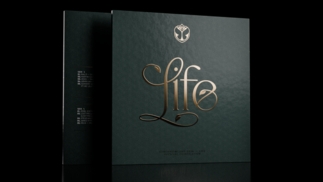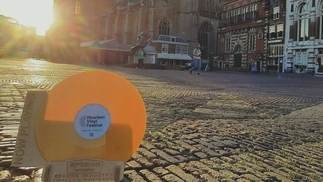The world’s smallest vinyl record has been created by a nano-sculpting machine
"Since we're working on the nanoscale, this one isn't playable on your average turntable"

Researchers at the Technical University of Denmark (DTU) have cut what they say is the world's smallest record, a recording of festive favourite 'Rockin' Around the Christmas Tree', which is so miniscule it could fit within one single groove of a regular vinyl record.
The tiny vinyl record, which measures just 40 μm/micrometres or microns in diameter (for scale, the diameter of a human hair is 70 microns, and a red blood cell is eight microns) was created using a new nano-sculpting machine called the NanoFrazor — a 3D lithography system — and packs in the first 25 seconds of the aforementioned song.
"We've taken a snippet of 'Rockin' Around The Christmas Tree' and have cut it just like you would cut a normal record—although, since we're working on the nanoscale, this one isn't playable on your average turntable," said DTU Physics researcher Peter Bøggild. "The Nanofrazor was put to work as a record-cutting lathe—converting an audio signal into a spiralled groove on the surface of the medium. In this case, the medium is a different polymer than vinyl."
"I have done lithography for 30 years, and although we've had this machine for a while, it still feels like science fiction," added Bøggild.
Find out more via DTU here and watch a demo video below.
Last December, it was reported that vinyl sales in 2022 outstripped CDs in the UK for the first time in 35 years. A year on from hitting a 30-year high, UK record sales hit £116.8 million in 2022, next to to CD sales of £98.3 million – almost 16% more. It's the first time record sales have exceeded those of CD sales in the UK since 1988.
In other vinyl news, Teenage Engineering recently announced the launch of the PO-80 Record Factory, a compact, USB-powered record cutter that lets you cut your own 5” vinyl at home and even play them back in lo-fi sound.
Image via DTU Physics







